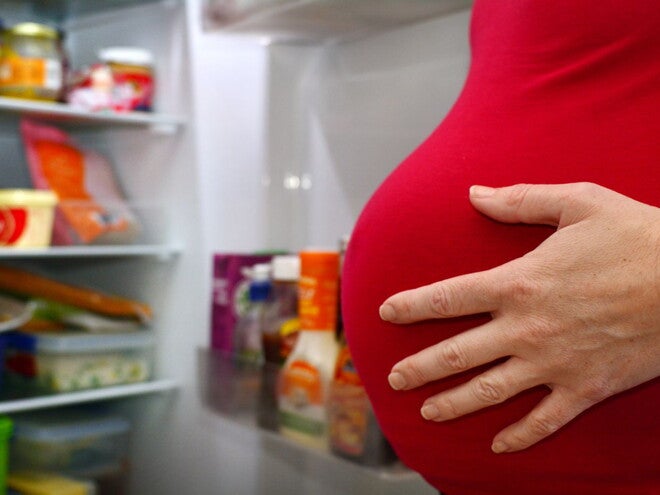
Food Cravings During Pregnancy
Food Cravings During Pregnancy
Pregnant women will tell you they experience almost irrepressible cravings for certain foods – salty, sweet, spicy or fatty foods. Some think it’s the body signaling what the growing baby needs. More likely, they’re due to hormones playing havoc (again!) with your senses of smell and taste – and your dietary habits.
It’s okay to give in… within reason
Cravings are normal while you’re pregnant. As long as you maintain a varied and balanced diet and your weight remains normal, you can indulge occasionally in the foods you crave. By increasing your interest in certain foods, cravings can help you meet those additional energy needs while you are pregnant, its just when you go overboard and indulge too much that problems may arise.
Tips to help manage your cravings:
- Don’t deprive yourself. Allow yourself some small pleasures.
- Never replace healthy food with junk food;
- Eat three balanced meals a day and allow yourself one or two snacks;
- Opt for whole-grain cereals, whole-grain bread, legumes, etc. which release energy over a long period and help with digestion;
- Cook real food and cut down on processed food;
- If you have to watch your weight, get into the habit of keeping your dessert to have as a snack;
Avoid unhealthy foods when craving, including sugary or fatty foods, artificial sweeteners (often found in diet foods) and caffeine
Some people feel cravings are the first conversations that you have with your child. It can be the nutritional requirements of the baby that give rise to these new demands or perhaps simply physiological needs increased by hormonal changes. Eating regular meals and snacks over the day can help combat cravings
Related articles

Nutrition checklist
NUTRITION CHECKLIST
Are you eating enough nutritious food with sufficient nutrients, kilojoules, vitamins?
1 min to read

Common nutrition-related problems
The influence of hormonal changes, and the effect of the changes in the size of the growing uterus, can lead to eating complications during pregnancy.
5 mins to read

The Ninth Month of Pregnancy
Your pregnancy: weeks 36-40. It’s time for the final preparations before the big day.
2 mins to read

The Seventh Month of Pregnancy
Your pregnancy: weeks 28-31. The changes in your body continue to take place as you enter your third trimester! As baby prepares for its future exit: its eyelids are uncovered and eyelash
2 mins to read

The Fourth Month of Pregnancy
Your pregnancy: weeks 14-17.
2 mins to read

The Sixth Month of Pregnancy
Your pregnancy: weeks 23-27. Your baby develops movements that will later help it take its first whiff of air in the world, inhaling and exhaling amniotic fluid.
2 mins to read


Labour
As labour starts, a mother’s mood changes and she becomes less aware of what is happening outside her body, and more aware of what is happening inside her body.
5 mins to read

Further comfort measures for pain relief
Distractions like breathing, visualising or fixing on one point can take your mind off the pain.
5 mins to read

Levels of fitness
First trimester
Your fitness is likely to decrease. Listen to your body and only do what you feel comfortable doing.
Second trimester
5 mins to read

Monitoring your response to exercise
It is important to monitor your response to your exercise programme by taking your pulse-rate before, during and after exercise.
5 mins to read

Nutrition during pregnancy
By taking responsibility for your body, you can maximise your level of wellbeing and enjoy good health.
Good nutrition is of the utmost importance during your pregnancy
5 mins to read


The third stage of labour
This stage lasts from the birth of the baby until the placenta is delivered, usually from 5–20 minutes.
5 mins to read


Personal considerations
You may need to consider some personal issues before you become pregnant.
1 min to read


Checklist - maternity ward suitcase
*Check whether the maternity ward has a list of the items you will need.
Items for hospital stay
5 mins to read

Medication for pain relief
In a normal, uncomplicated labour and delivery, the use of medication is not always necessary. Your own resources are often enough.
5 mins to read